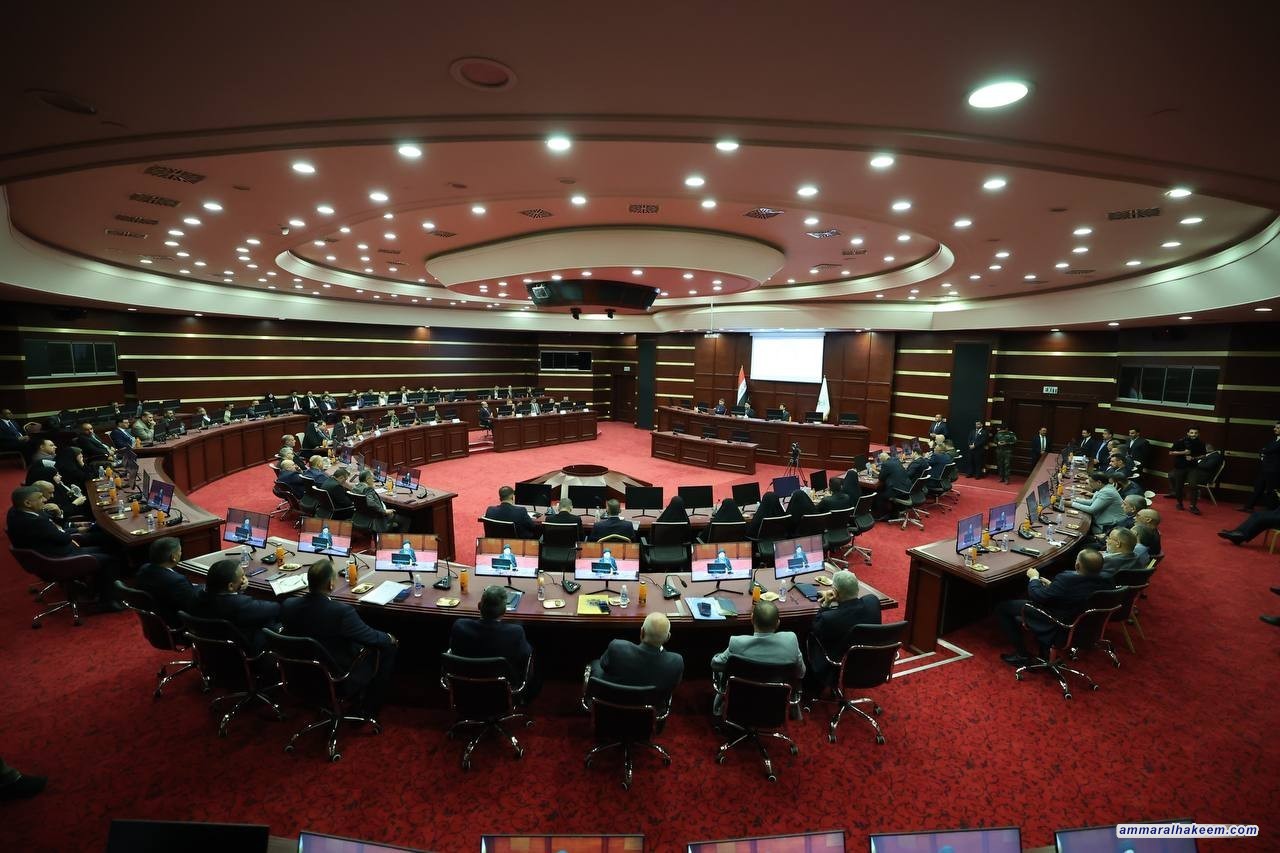Sayyid Al-Hakeem: Holy Cities Require Laws to Preserve Their Sanctity Without Contradicting Democratic Values
In the presence of Al-Najaf Al-Ashraf's governor, Sayyid Ammar Al-Hakeem, Head of the National State Powers' Alliance, met with the head and members of the Provincial Council, administrative unit leaders, service department directors, and security officials of Al-Najaf Al-Ashraf. His Eminence praised the city's historical significance as the home of Imam Ali (peace be upon him), the religious Hawza, and the blessed Religious Authority.
H.E. emphasized the unique status of holy cities, calling for laws that safeguard their sanctity while aligning with democratic values. Stressing the importance of empowering local governments as a cornerstone of administrative decentralization enshrined in the constitution, H.E. highlighted that this approach ensures the rights of provinces and their residents, as local authorities best understand their city's intricacies and needs.
H.E. called for restoring the powers of provincial governments and rejected the notion that ministries should supersede local governments in performance. H.E. urged collective responsibility to rectify this perception and advocated for leveraging all resources—political, legal, and executive—to strengthen local governance.
H.E. insisted on keeping local governments free from political conflicts, warning that such disputes harm the perception of local administrations and their developmental role. H.E. noted the significant presence of Coordination Framework forces in provincial councils and called for establishing a unified Coordination Framework bloc within local governments. Addressing economic concerns, H.E. warned against over-reliance on oil and the risks of a rentier state, urging diversification of income sources and innovative investment strategies for Al-Najaf Al-Ashraf. H.E. stressed harnessing the city’s religious, tourism, agricultural, and industrial potential, noting that all elements for success are present.
H.E. advocated for thorough feasibility studies for Al-Najaf’s projects to facilitate investment opportunities and emphasized prioritizing the province’s interests over disputes regarding such ventures. H.E. urged recognition of the positive development reports about Najaf, cautioning against focusing solely on negatives or exaggerating them. H.E. called for supporting the success of the national census by fostering a positive and unafraid public response, noting its vital role in creating a developmental database. H.E. also reaffirmed Najaf Al-Ashraf's historical identity of moderation and its association with Imam Ali (peace be upon him), encouraging the community to embrace this responsibility.
H.E. noted Iraq’s predominantly young population, advocating for utilizing their potential, integrating artificial intelligence, and adopting modern technologies. H.E. envisioned Najaf as a paperless city, with automation as the operational foundation. Turning to regional issues, H.E. described events in Palestine and Lebanon as acts of genocide, asserting that israel failed to achieve its declared objectives in the war. H.E. noted that failure to meet goals signifies defeat, highlighting israel's inability to maintain control over any territory it invaded or targeted. Lastly, H.E. called for care and hospitality toward Lebanese guests in Iraq until their safe return.


/9/3/photo_2025-12-10_09-25-13.jpg)
/9/2/photo_2025-12-10_09-17-58.jpg)
/9/1/photo_2025-12-10_09-11-13.jpg)
/8/3/photo_2025-12-09_10-42-49.jpg)
/8/2/photo_2025-12-09_10-37-31.jpg)
/8/1/photo_2025-12-09_09-54-18.jpg)
/7/1/photo_2025-12-08_09-38-41.jpg)
/5/1/photo_2025-12-07_09-25-35.jpg)
/3/2/photo_2025-12-04_11-05-55.jpg)
/3/1/photo_2025-12-03_11-49-28.jpg)